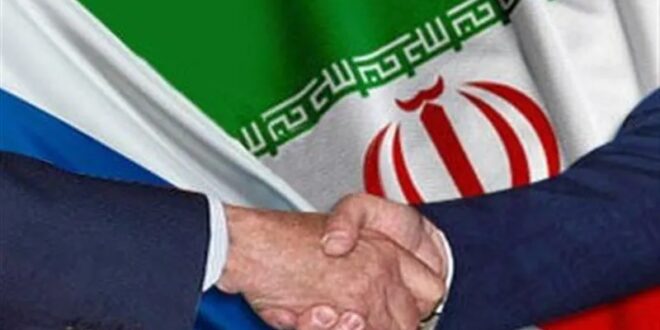The Iranian regime’s military cooperation with Russia is one of the core pillars of Tehran’s foreign policy and this partnership intensifies whenever the regime faces greater isolation and pressure in the region.
The US last week stated that the Iranian government is planning to supply Russia with hundreds of unmanned aerial vehicles, known as UAVs, including advanced models capable of firing missiles. In order to examine Iran’s weapons-capable drones, a Russian delegation reportedly visited an airfield in central Iran on several occasions in the last month, according to National Security Adviser Jake Sullivan.
As Sullivan told CNN: “We have information that the Iranian government is preparing to provide Russia with several hundred UAVs, including weapons-capable UAVs. We assess an official Russian delegation recently received a showcase of Iranian attack-capable UAVs. We are releasing these images captured in June showing Iranian UAVs that the Russian government delegation saw that day. This suggests ongoing Russian interest in acquiring Iranian attack-capable UAVs.”
Iran was likely attempting to keep this development confidential because it will probably increase domestic anger against the regime for exacerbating the Russian-Ukrainian war and it will also increase the pressure on the regime from the US and the Middle East. Likewise, Moscow probably did not want to make it public that the Kremlin is trying to buy drones from Iran as it will likely have a negative impact on its image as a global military power.
This is not the first time that the Iranian regime has tried to keep its military cooperation with Russia a secret, especially when linked to an ongoing war in another country. For example, in 2016, Iran secretly allowed Russia to use its Hamadan Airbase to strike some parts of Syria that were under the control of rebel groups. By doing so, the Iranian leaders violated a crucial article of their own constitution, which stipulates: “The establishment of any kind of foreign military base in Iran, even for peaceful purposes, is forbidden.” This surprised the Iranian people, as no foreign power had used Iran’s soil as a base for military operations since the Second World War.
Russia and Iran have also used their different military capabilities to advance their interests in the region. For instance, in Syria, when their interests were being threatened by Daesh and powerful Syrian rebel groups, Russia relied on airstrikes, while Iran’s Islamic Revolutionary Guard Corps and its proxies, such as Hezbollah, provided the boots on the ground necessary to make territorial advances.
Iran’s ruling hard-liners and Russia share a common interest in counterbalancing and scuttling US foreign policy in the region. Moscow also seems to favor Iran’s hard-liners — including Supreme Leader Ayatollah Ali Khamenei and senior IRGC officials — over other political camps due to the fact that they are less likely to undermine the Kremlin’s global influence by having any rapprochement with the West.
In addition, by being under significant pressure, Iran’s hard-liners and Russia seem to need each other more than ever. Tehran wants to increase its trade and evade US sanctions; Moscow would like to reassert its global leadership after it was heavily sanctioned by the West following its invasion of Ukraine in February. Russia’s closer ties with Tehran also extend its regional influence and give it leverage that can be used to push the West to lift sanctions.
On the other hand, there are some differences and competition between Russia and Iran. One of Russia’s main concerns is that the West might permanently decrease its energy dependence by tapping into Iran’s oil and gas sectors. Iran seeks a larger role in the gas market and is welcoming a Western partnership.
Russia and Iran possess the largest and second-largest proven gas reserves in the world, respectively. Improved ties between Tehran and the West could endanger Russian exports to Iran (mainly petroleum), as the former Soviet states could become better alternatives for Tehran to purchase petroleum. But so far, the Iranian regime is playing its cards wisely; by playing the West and Russia off against each other, Tehran is advancing its regional hegemony.
In conclusion, Russia and Iran’s military and political ties are expected to grow due to the convergence of their interests in the region and their shared antipathy toward Washington. But there are limiting factors, including their competition in the energy sector. In addition, Moscow does not want to damage its ties with other regional powers, which are Iran’s rivals — its protection of these relationships will continue to create obstacles between the Iranian regime and Russia.
 Eurasia Press & News
Eurasia Press & News




